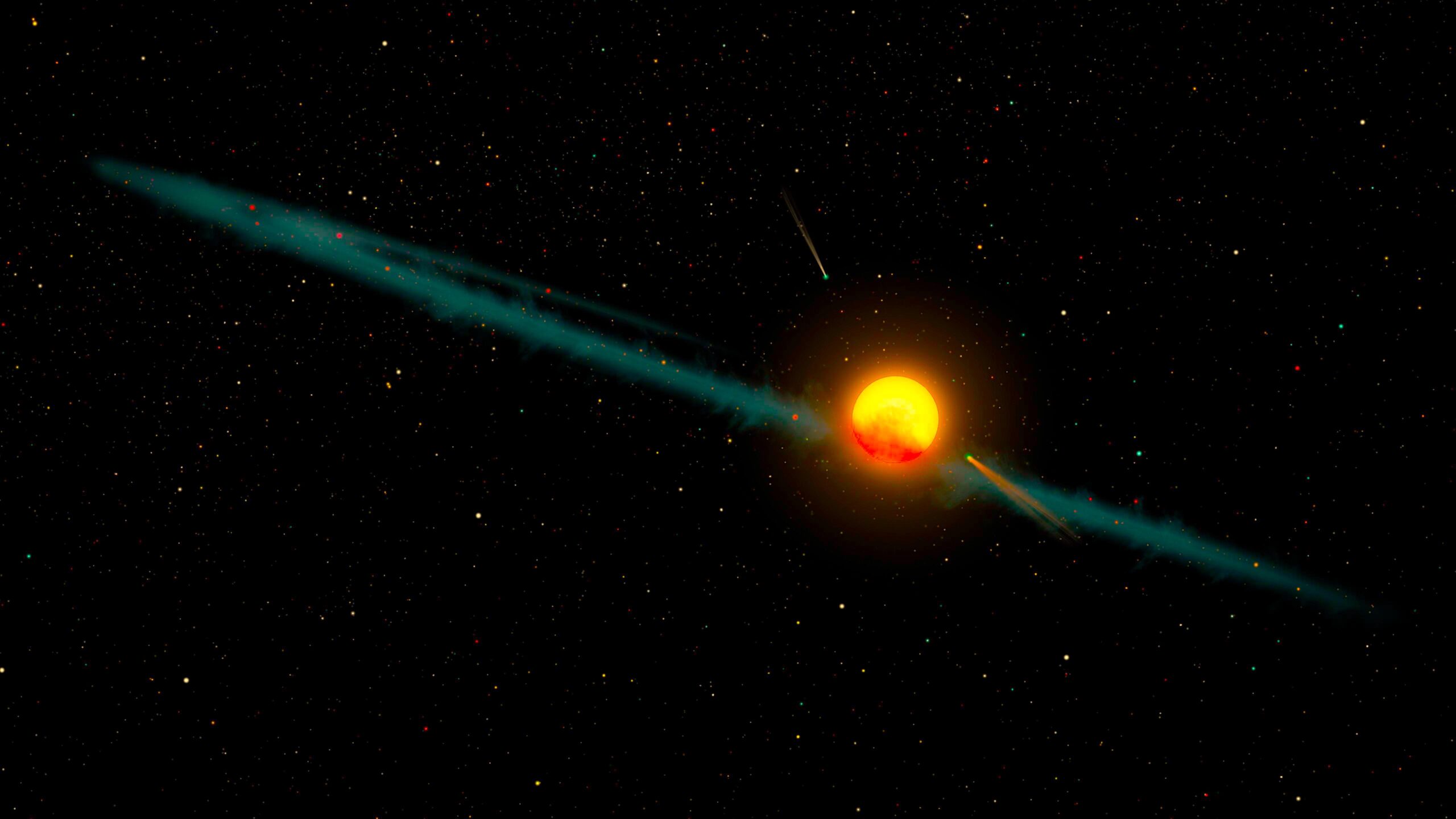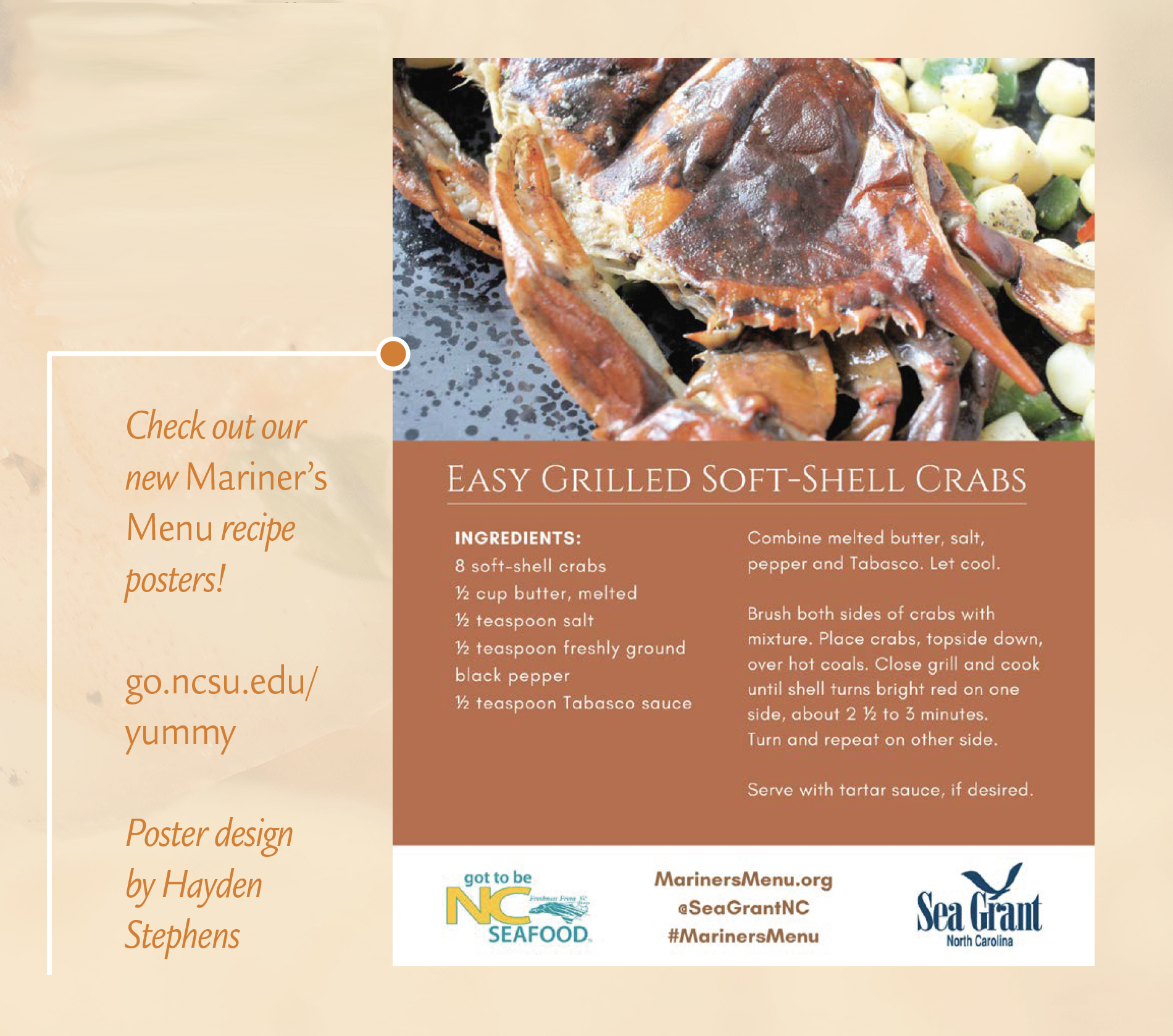COVID-19, Plastic Production, and Marine Debris
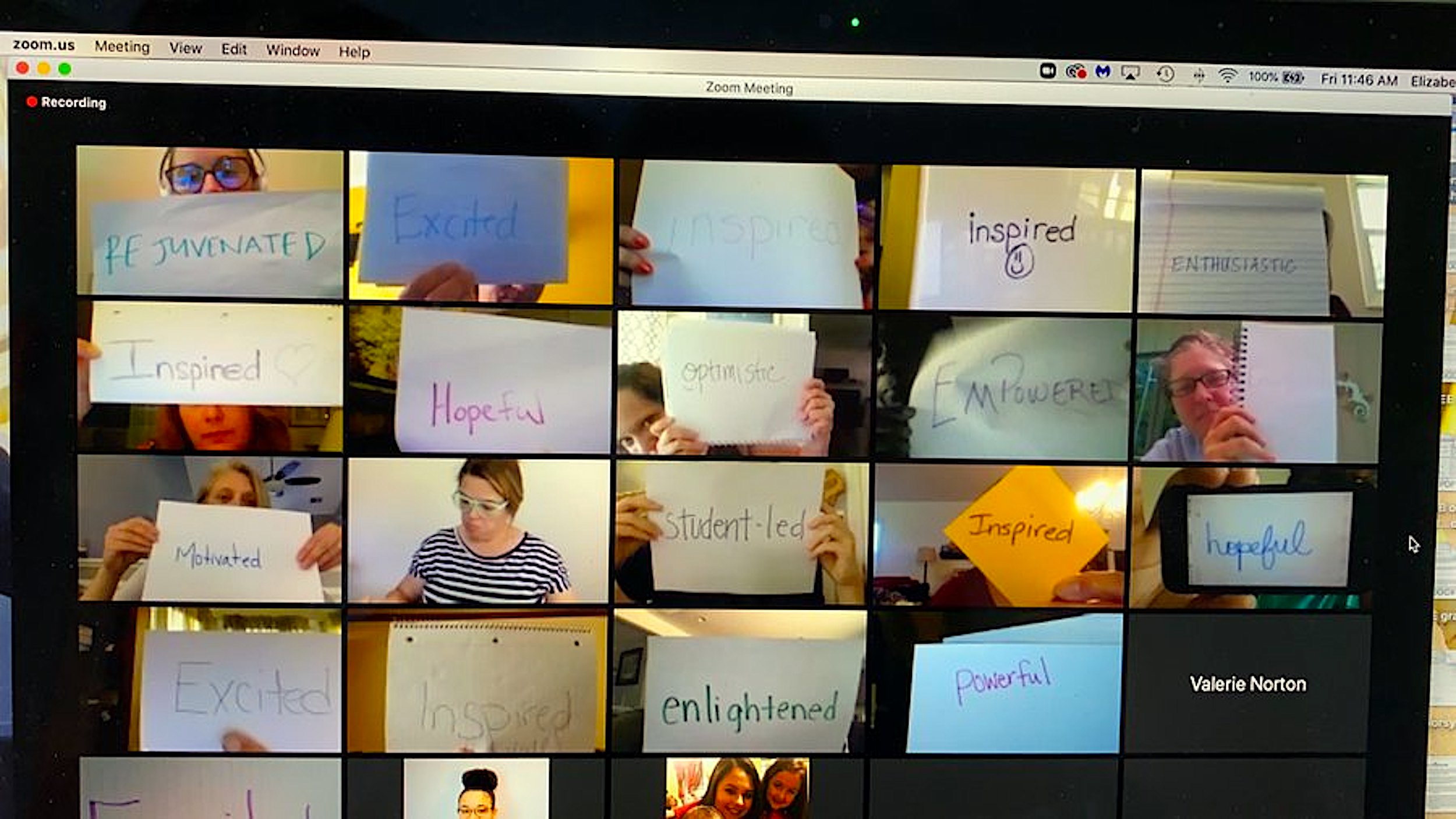
Engaging Students, Teachers, and the Public during a Pandemic
BY JENNA HARTLEY
Jenna Hartley, a NOAA Dr. Nancy Foster Scholar, is a Ph.D. student in Parks, Recreation, and Tourism Management at NC State University. Under the guidance of Kathryn Stevenson, her work includes marine debris environmental education research, which North Carolina Sea Grant has supported. Previously, she served as a high school science teacher for seven years and as a fellow at the U.S. Environmental Protection Agency for four years.
Visit the NCSU Environmental Education Lab’s Youtube channel.
COVID-19 has rattled all of us in some way, and it has hit some harder than others. While I am lucky to still be healthy and employed, I am writing this between spurts of having a 4-year-old crawl on my back and beg me to “go play.”
My Ph.D. project has also definitely taken a hit. It has proven difficult to research the impacts of hands-on, in-person, experiential education activities that young people can translate into marine debris solutions, given that there isn’t much hands-on, in-person, experiential education happening these days. Further, the 500 4th and 5th graders who had plans to present to their communities and local officials in May had to watch as their art show openings, film screenings, Town Hall presentations, and poetry slams all ground to a halt.
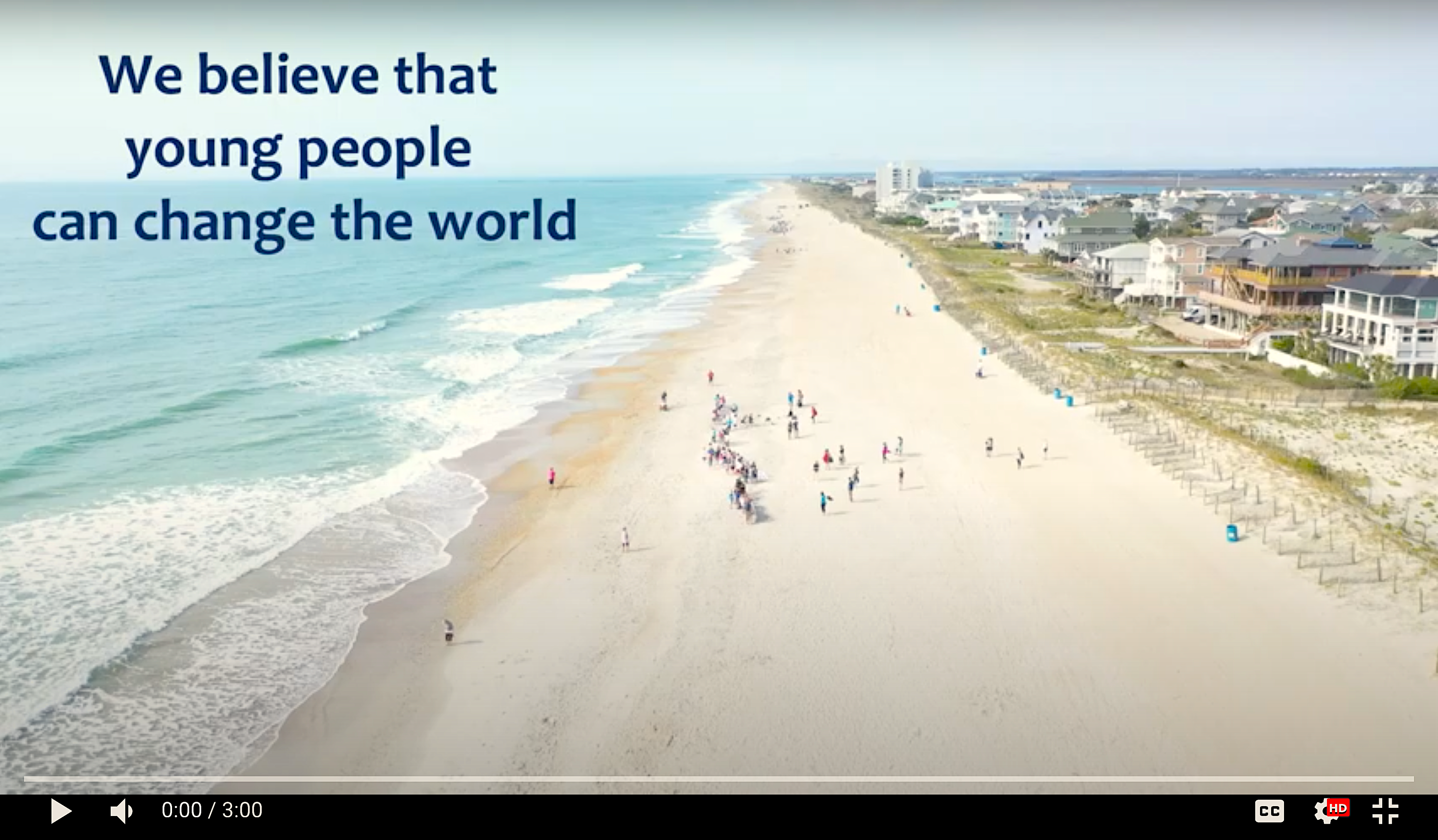
That was difficult for the teachers and students to experience and heartbreaking for me to watch as a facilitator, educator, and researcher. The 1,500 local officials that we had invited from across 33 counties in North Carolina to attend student-led marine debris events were wrestling with decisions about how and when to open up their communities, how to do that safely, and how to adequately address social injustices and systemic racism in their schools and communities.
Many of the issues around plastics, COVID-19, and social inequities have overlapping impacts and real connections.
Plastic is currently the backbone of medical personal protective equipment (PPE). Although extremely helpful and valuable for prevention of coronavirus transmission and for other medical purposes, widespread use of PPE necessitates increased plastic production, one of the main upstream drivers of the marine debris crisis.
Monique Harden of the Deep South Center for Environmental Justice testified before the House Subcommittee on the Environment in July about the effects of increased plastic production on Black Americans. As Harden noted, COVID-19 itself has had a disproportionate effect on Black Americans; although 25% of those killed by coronavirus are Black, only 12% of the U.S. population is Black.
“This disease seems to have found virtually every social determinant of health where racial inequity exists,” said Harden, “and it is important to note the emerging trend in which an increasing amount of oil and gas production is not for energy supply, but for plastic materials. We are beginning to see plastic production drive the oil and gas industry.”
Harden explained that plastic production recently caused the displacement of Black residents, as well as other people of color, from their communities in Louisiana in order to make way for the oil and gas complexes used for plastic production.
“Black people are 79% more likely than whites to live in neighborhoods where industrial pollution poses the greatest danger to their health,” she said, referencing Dorceta E. Taylor’s seminal 2014 book, Toxic Communities: Environmental Racism, Industrial Pollution, and Residential Mobility. Communities near plastic manufacturing facilities, for instance, experience high rates of respiratory illnesses, which can make those communities more vulnerable to COVID-19. In fact, scientists are increasingly finding that areas in Louisiana and Texas — with the highest COVID-19 death rates in the U.S. — are also hotspots of pollution in the industrial corridor.
Health vulnerabilities and vulnerabilities due to race are inextricably linked in the United States, and now more than ever should be the time to address those overlapping impacts head-on in an effort to truly protect human health and the environment.
Prior to COVID-19, there was a groundswell of support for plastic pollution prevention policies around the globe, including, slowly but surely, across the United States. Now, though, citing health concerns, the straw ban in the United Kingdom has been delayed to at least October; the single-use plastic ban in California was lifted in April; and enforcement of a new bag ban in New York has been delayed multiple times. A few states even have prohibited the use of reusable bags entirely, despite evidence that reusable items, including bags, are safe when people follow basic hygiene practices.
Incidentally, if you’re interested in COVID-19’s impacts on plastic bans near you, check out this living spreadsheet from the Product Stewardship Institute.
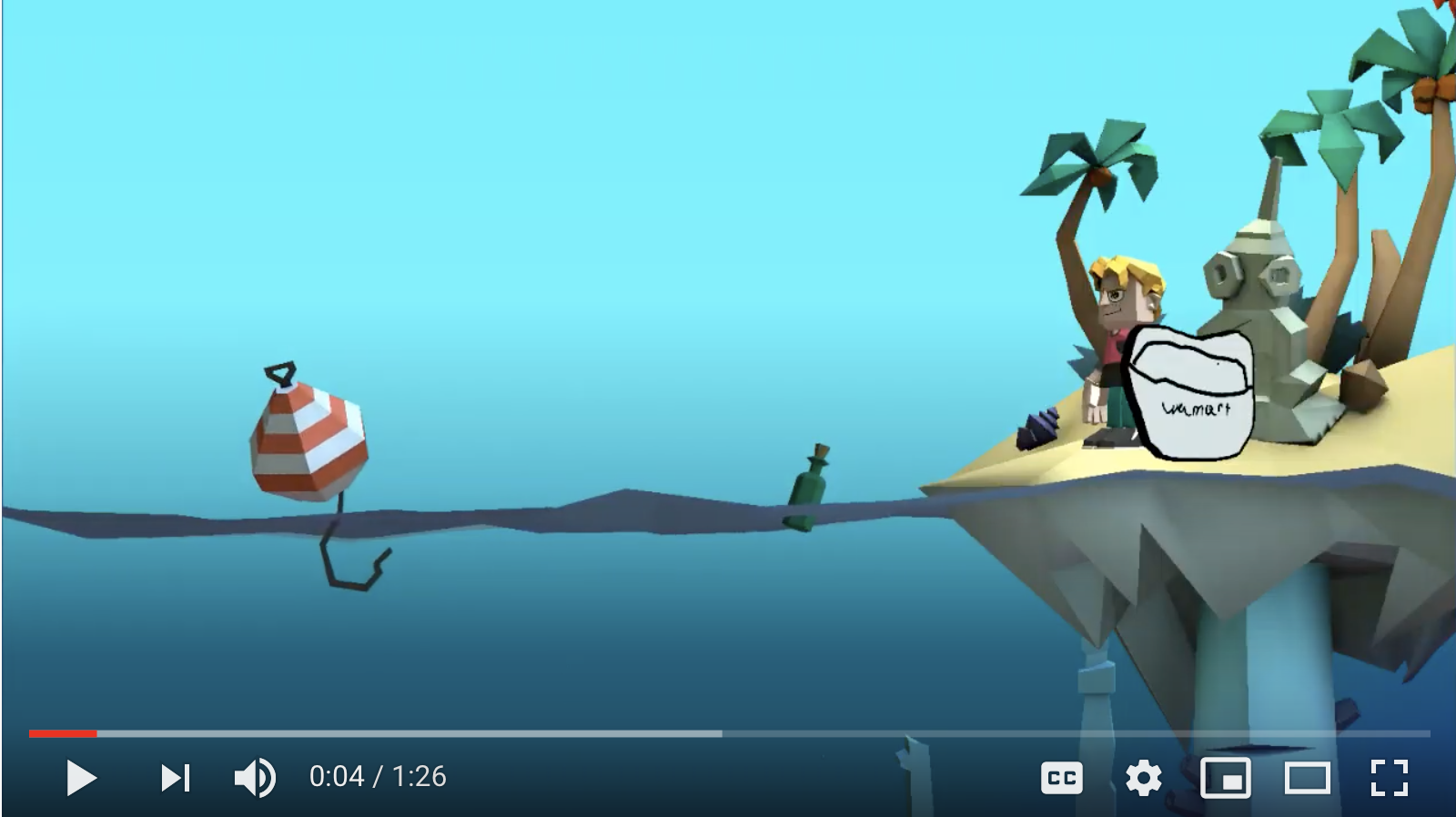
Although the elementary school students involved in our project weren’t able to give their public marine debris presentations this Spring, we were able to quickly pivot and post their public service announcement (PSA) videos online to share with their communities. We were also able to run a third marine debris workshop for teachers this summer with all of the activities adapted for a virtual format. We’re back at it again this school year, working hard to empower youth as environmental change-agents in their communities on the topic of marine debris, including resources for teachers so they can discuss social justice implications of plastic production.
We’re all adapting. Going forward, we must remain diligent in our efforts to keep the environmental impacts of plastic production and marine debris at the forefront of policy-making conversations while remembering that they are intertwined with pressing concerns of COVID-19 and social inequities.
Thanks to Caitlin Reilly of the NC State Environmental Education Lab for her edits and contributions, and thanks to Louie Rivers for providing the space for critical reflection as part of his graduate-level course at NC State, Environmental Justice & Decision-Making.
- Categories:

